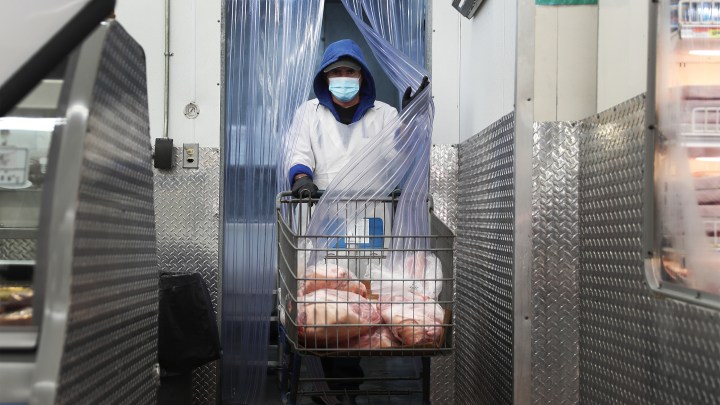
Who should pay for hazard pay?

Sixteen dollars an hour — that’s how much Rashad Lloyd was making at Total Wine & More in Virginia in March. Now, he’s making $14 because his hazard pay expired in April. And he feels pretty stuck. It’s not like there are a lot of other jobs out there.
“There’s absolutely no alternative right now, and a lot of these companies understand that there’s no alternative,” he said.
Back in March, when stay-at-home orders began, a bunch of businesses were giving essential workers hazard pay, typically a $2-an-hour boost. Now, even though the pandemic is surging in much of the country, hazard pay has mostly disappeared.
That’s partly because at the beginning of the pandemic, companies were worried employees wouldn’t show up to work.
“The power dynamics have changed,” said Erin Hatton, a professor of labor sociology at the State University of New York, Buffalo. “Employers are more easily finding workers, so they’re decreasing incentives to bring workers into the workplace.”
Companies also feel like they don’t have to pay extra because stay-at-home orders have lifted. And aside from big companies like Amazon and Kroger, a lot of businesses can’t afford to give hazard pay forever.
“Business owners need to be supported by governments. I mean, this cannot be an employer enterprise,” Hatton said.
Now, states are stepping in. This week, Pennsylvania established a grant program for businesses to offer bonuses for workers in healthcare, transit, food manufacturing and food retailing.
That’s one way governments could support essential workers. They could also offer companies incentives, like tax breaks. Or mandate that companies pay up, though that means businesses that are already struggling would continue to foot the bill.
A government mandate would also do something else: create rules and guidelines around hazard pay.
Before the pandemic, most people would never have called a grocery store worker’s job dangerous. And now that we’ve reopened much of the economy, with the virus still a threat, many would argue hairstylists and restaurant servers are doing dangerous work, too, said Nicole Hallett, a professor of labor law at the University of Chicago.
“The definition of what we considered to be hazardous work, what is hazardous work, has changed.”
There’s a lot happening in the world. Through it all, Marketplace is here for you.
You rely on Marketplace to break down the world’s events and tell you how it affects you in a fact-based, approachable way. We rely on your financial support to keep making that possible.
Your donation today powers the independent journalism that you rely on. For just $5/month, you can help sustain Marketplace so we can keep reporting on the things that matter to you.












